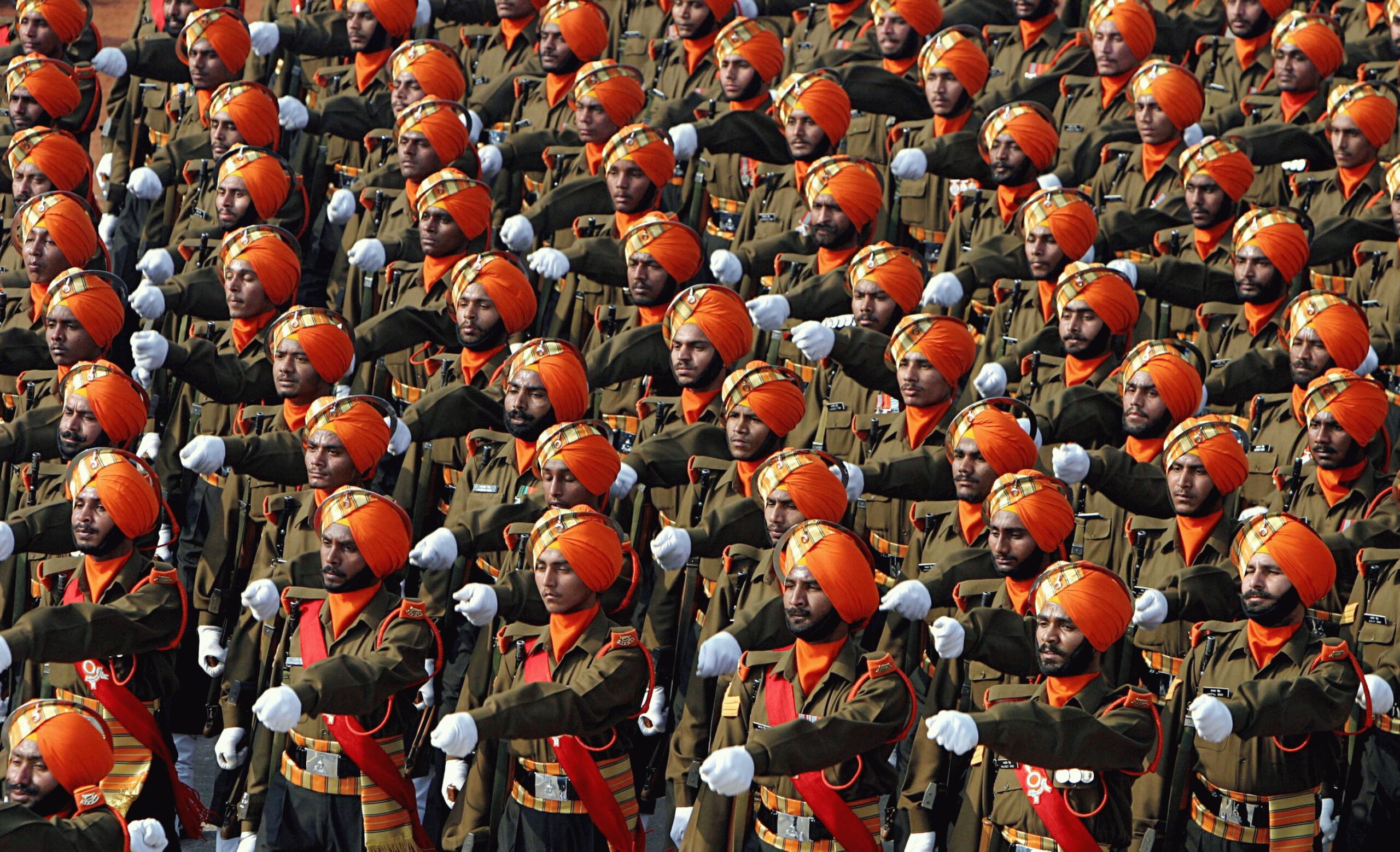Weak economy hurts national defence
Tight regulation is not just hurting the economy but also national defence
Ravi Shanker Kapoor | March 22, 2022 11:49 am

Photo courtesy: Wikimedia.org
India’s economy opened up in 1991; this ended some of the worst features of socialism. But socialism, like evil, has the tendency of resurrecting itself; the most common practice is by way of regulation and regulators. This is exactly what has happened since Atal Bihari Vajpayee demitted office in 2004. The consequences are deleterious not just for the economy but also national security. Against the backdrop of a recalcitrant Pakistan and a belligerent China, our military needs more arms and armaments but, as the Parliamentary Standing Committee on Defence pointed out recently, can’t get them because the fiscal situation is not very good.
The deep pink state—represented by the policy and decision makers who are socialist by training and temperament—continues to suspect the ‘exploitative’ capitalists. Consequently, it brings out rules, regulations, and compliances that torment entrepreneurs. Unsurprisingly, the wealth creators are not very keen on investing in India; many of them, with their moneybags, are shifting to the countries where enterprise is respected.
As a result, growth stays sluggish; in fact, it was declining even before the Covid pandemic; the ensuing lockdowns made the matters worse, and now there is also the war in Ukraine. The exchequer gets further strained because of all this.
So the Finance Ministry cuts defence expenditure. At a time when the military confrontation with China in eastern Ladakh shows no signs of de-escalation, and the China-Pakistan collusion is fast extending from the land borders to the high seas, the Indian armed forces got around Rs 63,000 crore less for modernization than what they had asked for in the 2022-2023 budget, The Times of India reported on March 17.
All services suffered. The Army got only Rs 32,115 crore when it had projected a requirement for Rs 46,844 core under the capital outlay. The IAF got Rs 56,852 crore instead of Rs 85,323 crore, while the Navy got Rs 47,591 crore instead of Rs 67,623 crore.
In March 2012, the then Army chief, General V.K. Singh, had written a letter to defence minister A.K. Antony, informing him of the serious shortage of ammunition. The General had expressed his fear that in the event of war, it may run out of stocks in two days. Now that Singh himself is a Union Minister, what does he have to say? Has nothing changed in the last decade?
The committee, in its reports tabled in Parliament, said that the aim should be to induct “capital-intensive modern machines, which are imperative to tilt the result of war in our favour and also increase the deterrence capabilities of our country.” It also said the Ministry of Defence should ask the Finance Ministry “to not curtail the projected amounts as this results in reprioritization of schemes/activities, which might end up compromising operational preparedness.”
Even if the MoD does tell FinMin to be concerned towards national defence, the latter cannot provide the funds required because it doesn’t have them. The goods and services tax crossed the Rs 1.3-lakh-crore mark in January, but populism is a drain on the exchequer. What is more harmful is the statist attitude which results in tight regulation.
The corporate sector somehow negotiates byzantine regulations but startups and micro, small and medium enterprises (MSMEs) often get lost in the labyrinth of compliances and rules. As many as 5,907 businesses registered with the MSME Ministry were shut during 2020-21 and 2021-22 (till March 9, 2022), according to the government data. Nobody is likely to know how many were actually shut down, for not all MSMEs are registered.
Then there is the GST imbroglio. Ritesh Kumar Singh, The writer a business economist and CEO, Indonomics Consulting, a policy research and advisory startup, recently wrote that “multiple rates and never-ending filing and reporting requirements have turned the GST regime against smaller businesses and first-time entrepreneurs. No wonder, out of 6.3 crore enterprises (the latest available data from NSSO 2015-16), only 1.34 crore have joined the GST network. There is no official data on how many firms have cancelled their GST registrations. But anecdotal evidence suggests that an increasing number of small businesses are either de-registering, and/or trying to remain small by not letting their sales turnover increase the threshold of Rs 20 lakh for services firms and Rs 40 lakh for manufacturing entities, above which GST registration is mandatory.”
It is not that the problem is new or was not pointed out earlier. A year ago, the Confederation of All India Traders (CAIT) had written a letter to Prime Minister Narendra Modi seeking his intervention on the “complicated” GST. CAIT is run by Praveen Khandelwal, an activist with links to the Sangh Parivar.
“Much against the public announcements on GST, the GST Council has made the GST as the most complicated tax system which runs contrary to ‘ease of doing business’ mandate of the government,” said Khandelwal.
While the authorities have been given arbitrary and unfettered powers, including the power to issue show-cause notice, the opportunity of hearing has been denied to the alleged offenders, CAIT said.
In a country where the state keeps arrogating huge powers to itself and, concomitantly, subjects wealth creators to arbitrary rules, it would not be very reasonable to expect a comfortable fiscal situation. And when that happens, everything feels the strain, including national defence.






























